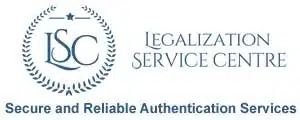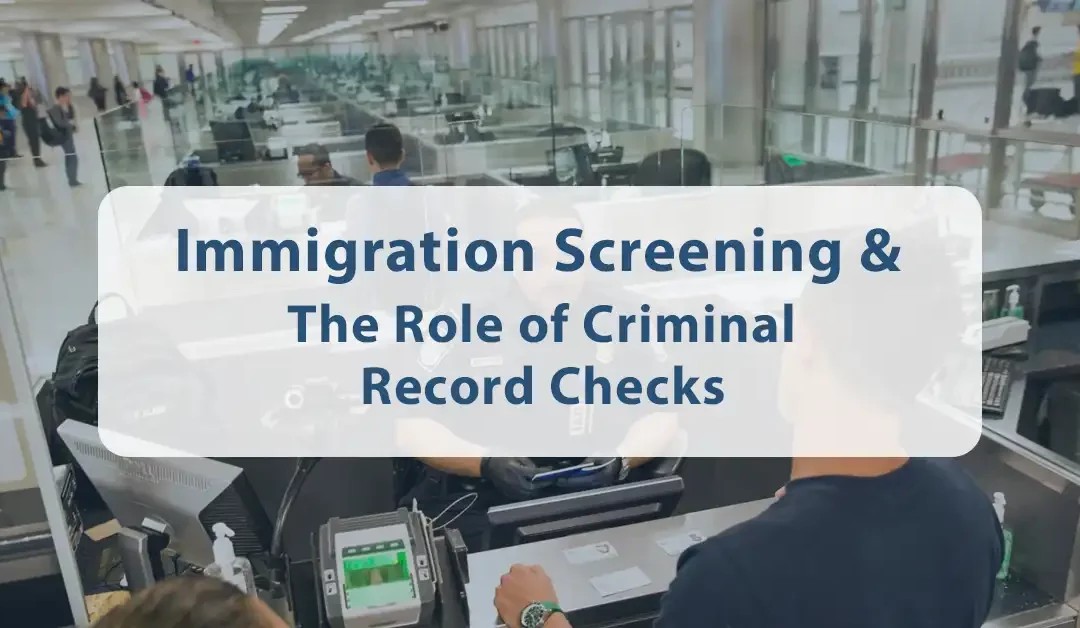In the complicated landscape of immigration, factors like national security, public safety, and human rights play an essential role. Among the key elements of immigration screening is assessing applicants’ criminal history through criminal record check certificate. It is the process of evaluating individuals who wish to enter a country to determine their eligibility and admissibility. One important aspect of this screening is the assessment of criminal records. Criminal records provide information on an individual’s past criminal activities, if any, which can impact their immigration status. It helps immigration authorities make informed decisions regarding the admissibility of individuals, ensuring the safety and security of the country.
Understanding Immigration Screening
Evaluating Eligibility and Admissibility:
It refers to assessing individuals who wish to enter a country to determine if they meet the requirements and can be admitted. Immigration screening involves various criteria, such as criminal record checks, medical examinations, and verification of documents. The purpose is to ensure that only eligible and admissible individuals can enter the country.
The Role of Criminal Record Check Certificate in Immigration Processes
It highlights the importance of criminal record check certificate in the immigration process. When individuals apply for immigration, their criminal records are reviewed to determine if they have any past criminal activities. This assessment helps immigration authorities make informed decisions about their admissibility. Criminal record checks play a crucial role in ensuring the safety and security of the country by identifying any potential risks associated with an individual’s criminal history.
Ensuring Safety and Security:
It emphasizes the significance of immigration screening in maintaining safety and security. The screening process involves thorough evaluations to identify potential threats or risks posed by individuals seeking entry into a country. By conducting immigration screening, authorities can take necessary measures to protect the country and its residents from potential harm.
Assessing Criminal Records:
By reviewing an individual’s criminal history, immigration authorities can gain insights into their past activities and behavior. This information helps them determine whether the individual should be granted entry or if any concerns may affect their immigration status. Assessing criminal records is an essential step in ensuring the integrity of the immigration process.
The Significance of Criminal Record Checks in Immigration
Criminal record checks are essential to identify individuals with prior convictions or involvement in criminal activities. By looking at criminal records, immigration authorities can make informed decisions about who can come in. It’s crucial for both the authorities and individuals wanting to immigrate to understand the significance of these checks. They help identify potential risks or concerns that could impact someone’s ability to enter or stay in the country. The main objective is to protect public safety and national security.
Effects on Immigration Applicants
Determining Eligibility:
Criminal record checks can result in the outright denial of entry or visa issuance for individuals with specific convictions. Even minor offenses can lead to inadmissibility, contingent on the destination country’s policies.
Family Impact:
Decisions based on criminal records can lead to family separation. If one family member has a criminal history, they might be prevented from reuniting with their already settled family members in the host country.
Unequal Consequences:
Certain communities, especially downgraded or disadvantaged groups, might bear a disproportionate impact from criminal record checks. Inequalities in the criminal justice system, stemming from factors like race and socioeconomic status, can lead to unequal outcomes for immigration prospects.
Rehabilitation Challenges:
The checks may not adequately consider an individual’s efforts at rehabilitation or the context of their offense. Even those who’ve completed sentences and demonstrated reform could face difficulties during the immigration process
Keeping Security and Compassion in Check
While maintaining the protection of a country’s citizens is of utmost importance, it is vital to maintain a balance between security concerns and compassionate principles. Stronger laws may stop possible threats from entering a nation, but they may also limit chances for those who have changed their ways or who are escaping dangerous situations.
Here’s how we can find that equilibrium:
Assessing Risks:
Making judgments more impartially may be possible by using a sophisticated risk assessment strategy that considers elements like the seriousness of the offense and signs of rehabilitation.
Personalized Review:
Giving applicants a chance to explain their criminal history and efforts toward rehabilitation can lead to fairer treatment and prevent undue harshness.
Respecting Human Rights:
International human rights commitments include the prohibition against refoulment, which forbids returning people to perilous circumstances. Checks of criminal histories shouldn’t conflict with these obligations.
Considering Family Unity:
Policies should factor in the impact of decisions on family unity, especially for families with members already residing in the destination country.
Criminal record check certificate play a pivotal role in immigration processes, aiming to protect the safety and security of the host nation. Regarding keeping criminal records and the screening process, embassy legalization agencies play a crucial role. They work closely with immigration authorities to maintain accurate and up-to-date criminal records. Legalization Service Centre through their partners has access to databases and systems that allow us to conduct thorough background checks and verify the authenticity of documents. By collaborating with law enforcement agencies and other relevant institutions, we ensure that individuals with criminal records are identified during the screening process. It helps maintain the integrity of immigration systems.

